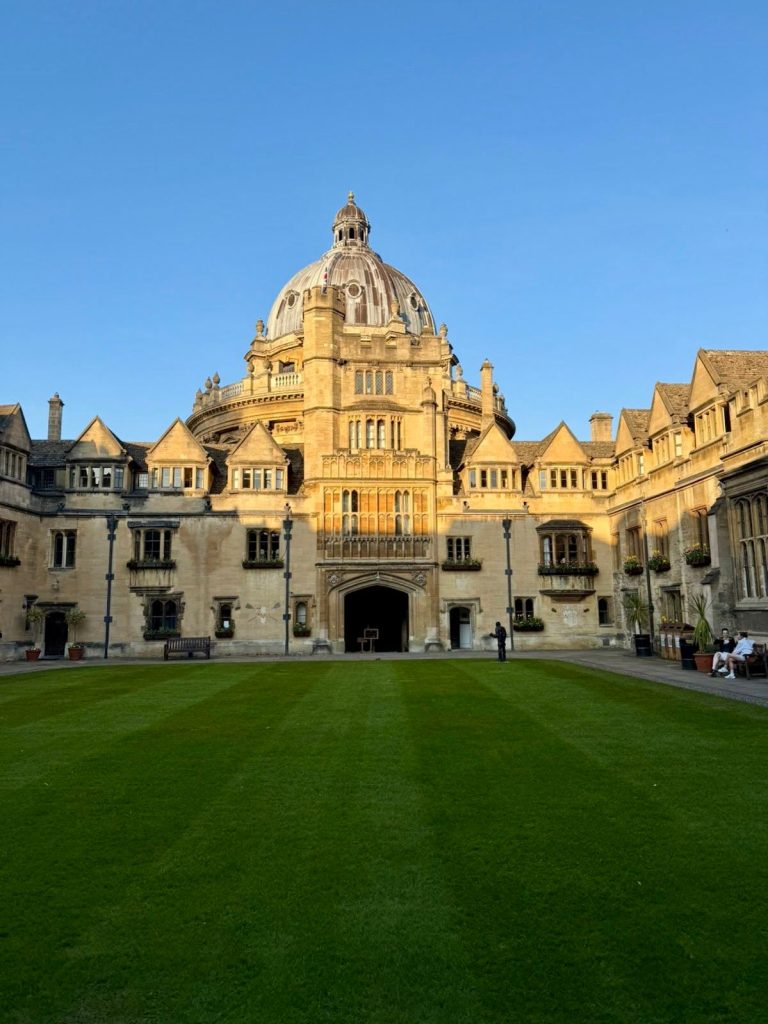“You did not hear them coming. You hardly heard them go. The grass bent down, sprang up again. They passed like cloud shadows downhill … the boys of summer, running.”
—Ray Bradbury, Dandelion Wine
In the final days of March, a week so warm it murmurs the promise of summer, I fall in love with who I used to be.
The morning sunlight that creeps along my desk as I fill a pencilled sketch with blooming pockets of colour. My grandmother wielding a long stick of bamboo to chase magpies away from our garden’s jujube tree. The sweet, clammy air after rain; mould caked into the pavement’s half-moon furrows during the humid hours. The silk of bedcovers against my ankles, the smell of my shirt fresh from the laundry. Picnics on the wildflower lawn, with pork-buns and fat slices of apple already beginning to yellow. Cold milk in a cardboard box the size of my fist. The low song of cicadas. I remember, now, that happiness is the shape of contrails in the rust of a dusky sky. I remember the long, languid days, the liquid blue eddying amongst the clouds clear enough to swim through.
Reading Ray Bradbury’s Dandelion Wine is like falling in love: with sensations, with noise, with wisps of memory. I remember how, to an eight-year-old at the beginning of July, summer is eternity.
I grew up in Shanghai, where the mosquitoes bite tenaciously and summer soaks itself in drizzles and monsoons. We lived right alongside Century Park, on the subway Line 7. Things that I now consider integral to myself were not yet shaped. Back then, the English language wasn’t even mine. (These days I can wield it gracefully enough. Like using a pocketknife to peel the skins of apples.) Many things that were mine back then—Saturday trips to the DVD store, the trampoline in the garden, house No. 36 on Huamu Road—are mine no longer.
Set in Green Town, Illinois, the literary ghost of Bradbury’s hometown Waukegan, Dandelion Wine does not follow a linear narrative. Absolved of a fixed synopsis, it is a collection of musings, snapshots, anecdotes, and visions, narrated in turn by brothers Douglas and Tom Spaulding. Bradbury’s writing is nostalgia personified. Memoir or fiction or a tantalizing mixture of both, this collection of offhand occurrences hypnotizes. Wading my way through the novel is like being taken by the hand, half-dazed and blindfolded, barefoot on the grass, and being walked into wonderland: down the small-town streets, past the fox-grapes and strawberry fields, towards the darkness of the ravine.
I’m no devotee to short stories. I like novels—lugging the same bulky paperback around on car-rides and trips to the mall, humid, lingering affairs intimate as marriages. I spent the coziest of teenage springs curled up on the sofa with Stephen King’s IT or Donna Tartt’s The Little Friend. I like chewing on the same pages week after week, staying with characters until I learn the patterns of their voices like knowing the whorls on my fingertips. I like assurance, repetition.
With Dandelion Wine, however, Bradbury tricks me. He taunts me with visions of familiarity in the strange. He teases visions of tenderness in transiency. The cardinal rules of how plot functions abandon you. You can’t seem to remember what they are. Here, in the fields of Illinois, in a small town as ordinary as it is mesmerizing, an invisible eye lifts its lazy lid. Its gaze follows an abundant cast through different seasons of their lives. We drift through the heads of Mrs Bentley who has never been young, Colonel Freeleigh whose mind contains a time machine; Mr Tridden and his hustling trolley, Mr Jonas and his castaway junk. Elmira Brown and Clara Goodwater turn female town-politics into a rabble of witchcraft. I laugh with Great-Grandma Spaulding’s vulgarity and snark as she finds beauty in life and peace in death. Helen Loomis and Bill Forrester catch sparks over peculiar flavors of ice-cream, realizing that their extraordinary affection for each other—alternatively romantic and platonic, excruciatingly human—is certain to thread them together across lifetimes. I fall in love with Lavinia Nebbs, whose bravado powers her through a face-off against the Lonely One, a serial murderer whose loneliness turns out to be ordinary. Above all, the town is most intimately tied to Douglas Spaulding: an eight-year-old narrator who realizes, over the span of July and August, that forever lasts only as long as a season. I have never stepped foot in the American Midwest, but I left the novel feeling as if the town was mine.
As a writer, Bradbury is cursed with an idyllic sense of freedom. His mellow, meandering voice runs through a disjointed patchwork of stories like a little brook. He has no schedule. He bows to no path. He follows the vague charter of clouds, pausing here to dig his fingers into the soil, there to tuck a wildflower behind one ear. In his warmth, I become a child again. I follow his footsteps where scattered thoughts take precedence over structure and synopsis. Images spin into view one after the other, a lazy kaleidoscope of sights and thoughts pulled out of memory. Bradbury trusts his readers to follow him into the wild, into the dreams. In his stead, I have been admitted into the boldest of confidences. My imagination cannot be contained, he tells us. Neither can yours.
Memory is inseparable from smell and taste. Bradbury’s storytelling is grounded in a desire to capture sensations: aromas, flavors, textures. Douglas’s sense of home is gastronomic. Nothing, of course, is quite so precious as the tastes of one’s childhood meals. In this vein, Grandma Spaulding’s cooking habits conjure otherworldly flavors. The fantasy of this setting equates acts of cooking with forms of enchantment. The magical realism of his writing comes from associating the familiar, the domestic, with hints of the mystic. In the tenderness of memory, engagements with separate temporalities are expressed through fantasies of ingestion: hold summer in your hand, pour summer in a glass… the smallest tingling sip, for children; change the season in your veins by raising the glass to lip and tilting summer in.
Like the dandelion wine Grandfather Spaulding brews on a fateful morning, Bradbury’s prose is poetry bottled up in sips, cool as balm on bitten skin, a patch of sunlight in the dark whose aftertaste is touched with longing. These little stories savor the griefs, acceptances, and desires that come with time. They carry us gently towards a recognition of life’s transience.
Time is Bradbury’s permanent fixation. The fear of growing old struggles to be rationalized alongside an anticipation of maturity. Time is the old nemesis, the sensuous lover. More time is the currency for seduction and manipulation, its baleful beckoning explored at length in the nightmarish carnival Bradbury creates for Something Wicked This Way Comes. These characters are confounded by their conflicted desires to grow up yet stay young. Although Dandelion Wine depicts gentler aspects of Green Town, we are still haunted by time’s ruthless potential. We want more time as a child, to roll in the grass and breathe the sun. We want more time to keep death at bay, beyond the door.
I remember those days, too. I remember the summers that never seemed to go anywhere. I remember the house so still at ripe noon that the searing-hot pavement outside the window seems to quiver in and out of existence. Yet unbeknownst to me, we were moving. I have gone. I have gone away. And I will never find my way back.
Where would you like to go, Helen Loomis asks, what would you really like to do with your life? Bill Forrester answers: See Istanbul, Port Said, Nairobi, Budapest. Write a book. Smoke too many cigarettes. Fall off a cliff but get caught in a tree halfway down. Get shot at a few times in a dark alley on a Moroccan midnight. Love a beautiful woman. If Bradbury is an author of fantasy, his ideas are not only fantastical in the supernatural sense. He articulates fantasies of miscellaneous experience, of living. We want to cling to what’s familiar. We want to live beyond the ordinary. We want to be coddled and filled with awe. We want to never lose, never grieve. We long for dreams in the afternoon and adventures way past midnight. We want more time. These are stories that love living, that anticipate living. These are stories about people who want so badly to start living they forget that they are already alive. To be swept up in the enormity of life’s currents is frightening, transcending, just as Douglas reminds himself: I want to feel all there is to feel. Let me feel tired, now. I mustn’t forget, I’m alive, I’m alive.
To grow up is to acknowledge your own mortality.
And so I look up from my pages, blinking, the ghost of cicadas in the distance, half-breathless with laughter. Because that happened to me. The summer of 1928 was mine. In reading, I feel as if I recall a childhood that never was. Douglas Spaulding’s euphoria was my own, but not my own. I remember the soaring life in the bouncing soles of brand-new trainers; running around the street-corner for an evening ice-cream; catching fireflies in Mason jars to read and write at night; the ghoulish joy that comes from fearing a local myth, a rumored monster. Dandelion Wine is what we all went through: losing a friend, and learning for the first time what distance means, what loss means, and what forever means; losing a childhood attraction, like the trolley that rides through your town, and realizing that what is permanent is not and never would be permanent. Feeling as if the summer would never end at the hot, glorious beginning of July. Understanding what it means to be alive, in the earthen scent of the grass. Understanding that, someday, you will die.
I remember every crack, every fissure, that brought me up the path to the house that was once mine. My childhood was Edenic, just like his. I was clueless, then. But I was wiser than I will ever be. I was so alive that the world shivered at my fingertips. I may never be so alive again.
Mine, I think. My life laid before me like a tapestry. I reach out and twist it, marking a fistful of silk with my fingernails. Mine.
Forever, whatever it means, is still mine.
To recall childhood is to love a place, a person, of no return. It is strange and mesmerizing. It is as wonderful as a fever dream. Bradbury does everything – puts to words the feelings that I never could express, gives life to aches and pains, laughs and joys, the small bumps and chinks that turn the wheel of mortality. Dandelion Wine is the summer that makes up for all the summers of one’s youth that came and never ended. It is the murky firelight of happiness and grief stirred by the childhood that would never come. Dandelion Wine is the taste in the mouth of my little self: the smell of grass, a tinkling laugh on a sidewalk, a summer sky.
Dandelion wine. Dandelion wine. Dandelion wine.











